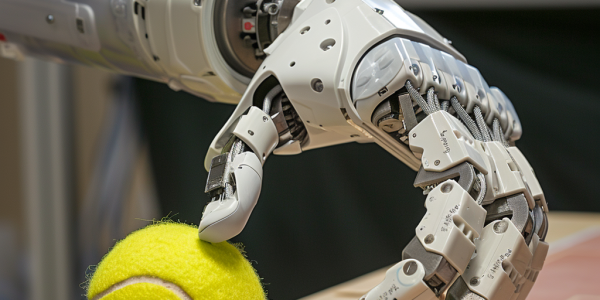FastWave Medical Granted Fifth Utility Patent by USPTO for Innovative IVL Technology
FastWave Medical secures fifth utility patent from USPTO for its innovative intravascular lithotripsy technology, aimed at revolutionizing treatment for calcific disease. CEO Scott Nelson emphasizes company’s commitment to advancing patient care through cutting-edge solutions. Visit FastWave Medical’s website for more information.
Baby girl born deaf hears unaided after groundbreaking gene therapy
Groundbreaking gene therapy enables baby girl born deaf to hear unaided for the first time. Opal Sandy from Oxfordshire received innovative gene therapy treatment at Addenbrooke’s Hospital in Cambridge, showing significant improvement in hearing within weeks. The therapy targeted the OTOF gene, responsible for producing otoferlin protein crucial for hearing. Results of treatment exceed expectations, offering hope for future advancements in treating hearing impairment.
Highly Pathogenic H5N1 Bird Flu Detected in Dairy Cattle Across Nine US States
Health authorities in the United States have confirmed the presence of H5N1 bird flu in dairy cattle in nine states, with the virus detected in raw milk samples. While pasteurization makes milk products safe, consuming raw milk is strongly advised against. H5N1, primarily infecting birds, has spread to cows and other mammals, raising concerns. The CDC reports low human transmission risk, with only two confirmed cases in the US outbreak. Occupational exposure remains the highest risk for infection.
Walmart Pharmacies to Host Wellness Day Event Offering Health Services
Local Walmart pharmacies are hosting a wellness day event this weekend, providing free health screenings for glucose, cholesterol, BMI, and blood pressure, along with immunizations for COVID-19, RSV, tetanus, hepatitis, and HPV. The event will also feature wellness resources and pharmacists for consultation, aiming to promote community health and well-being by offering convenient access to important healthcare services.
Groundbreaking Cancer Research Discovery by Late UVA Scientist John Herr
Groundbreaking cancer research has emerged from the late University of Virginia School of Medicine scientist, John Herr, regarding the SAS1B protein found in cancer cells. Collaborating with Dr. Craig L. Slingluff Jr., Herr’s work holds the promise of innovative treatments for solid cancer tumors like breast cancer, lung cancer, and melanoma. Recent scientific publications highlight the significant impact of Herr’s investigations, pointing towards potential groundbreaking advancements in cancer therapy.
Research Reveals Concerning Presence of Airborne Microplastics and Potential Health Risks
Recent research in Japan has revealed the presence of airborne microplastics, posing potential risks to human health. These particles, less than 5mm in length, can absorb toxic substances and enter the food chain. Experts like Hiroshi Okochi and Hiroshi Ono are studying the impact of microplastics on ecosystems and global warming, emphasizing the need for further investigation and mitigation strategies.
Study Shows 5:2 Fasting Diet May Have Anti-Inflammatory Effects on Liver Health
Discover the potential anti-inflammatory effects of a 5:2 fasting diet on liver health. A recent study by experts from the German Cancer Research Center and the University of Tübingen found that intermittent fasting can reduce signs of liver disease and lower levels of liver damage biomarkers. Learn how a 5:2 fasting regimen can make mice more resistant to developing non-alcoholic steatohepatitis (NASH) and the specific proteins responsible for these protective effects.
Revolutionizing Touch Perception: New Artificial Tactile System Developed for Robots and Prosthetic Hands
Discover the groundbreaking artificial tactile system developed by researchers at Uppsala University and Karolinska Institutet, revolutionizing how robots and prosthetic hands perceive touch. This innovative system mimics the human nervous system’s response to touch, enabling robots to identify objects just by feeling them. With the potential to feel pain, heat, and differentiate materials, this technology could lead to more lifelike interactions in robotics and prosthetics.
Expert Tips for Longevity: Five Essential Diet Tips from Dr. Florence Comite
Learn from precision medicine doctor Dr. Florence Comite on how to live longer with five essential diet tips. Discover the projected growth of the longevity therapeutics industry and the impact of lifestyle choices on healthspan. Follow Dr. Comite’s advice on cutting down on ultra-processed foods and adopting a Mediterranean-style diet to promote longevity and overall well-being.
Study Shows Vegetarian Diets Can Reduce Risk of Cancer and Heart Disease
A recent study has found that adopting a vegan, vegetarian, or lacto-ovo vegetarian diet can reduce the risk of cancer, heart disease, and premature death. The umbrella review highlighted the benefits of plant-based diets in lowering cardiovascular risk factors and reducing the risk of specific cancers. However, the study cautioned against poor dietary choices that could compromise the protective effects of these diets. Dr. Federica Guaraldi warned against diets high in unhealthy plant foods like fruit juices, refined grains, and potato chips. It is important to consider other lifestyle factors such as regular exercise and avoiding sugar-sweetened foods when evaluating the impact of plant-based diets on overall health.










